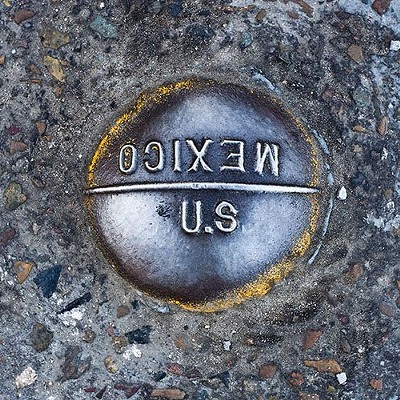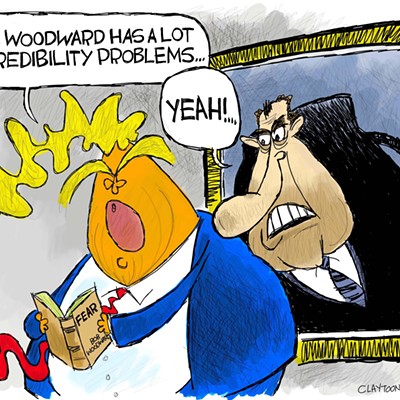Drinking beer is not, however, a solitary way of life for Fear, according to the gravelly-voiced, late-40-something Ving, speaking from his home in L.A. last week. "It's just a subject that we find many people are able to relate to, like hard work, like making a living, like supporting your family, like beer," he answers, a little perturbed at the line of questioning.
Ving says the ubiquitous topic of beer and the cartoon nihilism synonymous with Fear has not hindered the band's career. "Well, we started out writing punk rock tunes about nuclear physics," he says. "We found out quickly it's a rather dull subject, so we tried beer and it worked out great." And what keeps him inventive and angry after all these years--two sixpacks a day? "Nutrition, exercise and vitamins," he laughs.
Ving says he thrives on the exhausting tour itineraries. "The reason that we do all that (touring) is to get to play this music that I'm writing for large groups of people," he says. "It makes it very worthwhile, not to mention the money. As long as we keep playing fast, and we keep it interesting by contrasting the rhythms, and we keep singing about beer, it looks like everybody is happy."
Not unlike the tiring gigging, Ving says the slam dancing audiences who faithfully attend Fear shows have not wavered over the years, either. "The punk scene has not changed that much," he says. "The crowd looks pretty much similar and the age range seems to have somehow remained the same, but really only the economics and the political leadership have changed. I'd have to say that initially (in '78), the scene itself was small. There was something going on in Boston and New York, but it was happening mostly in L.A. A lot of clubs wouldn't have the music, so there were a lesser number of places that was available for punk music. So we [Black Flag, X, Circle Jerks, Germs] all sort of got huddled together as we were trying to emerge, all these great bands that were happening at the same time. Many of them went away because of it, but it made for a more closely knit scene. That aspect is definitely missing today.
"Now it doesn't matter what you play," Ving continues, growing increasingly perturbed as he ruminates on the current state of punk. "Punk rock has become corporate like Las Vegas has. The mob no longer runs Las Vegas, and punk rock is no longer the meat of cheesy independent labels like Slash Records [which, much to his chagrin, still retains the rights to Fear's scorching debut, The Record, released in 1982]. It's now the main entrée offered by such things as the Warped Tour and other corporate successes. It's become a family deal now."
Releasing only five albums over the course of a 20-plus-year career doesn't seem like much in terms of songwriting proclivity for the once anti-woman, anti-homosexual menace. (In Ving's defense, he was sidetracked by a successful supporting-role acting career in the late '80s, usually portraying bikers, sleazy strip club owners and other assorted bad guys.)
But he's matured slightly and averted the evil corporate gluttons by releasing Fear's latest wit-fueled, hops-soaked opus, American Beer (2000), its first new studio album in six years, on the entirely independent Hall of Records label. Although artistically superfluous, American Beer is as loud, fast and brutally cynical as ever.









